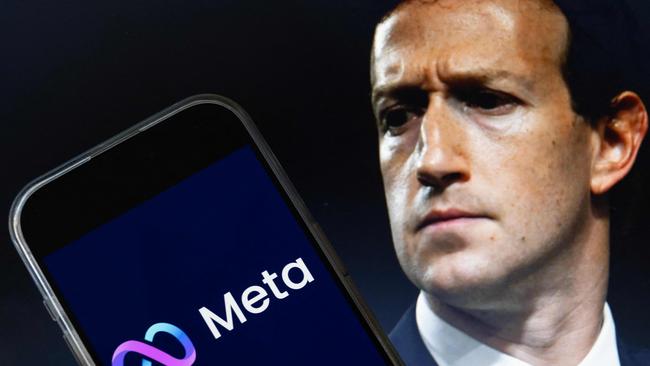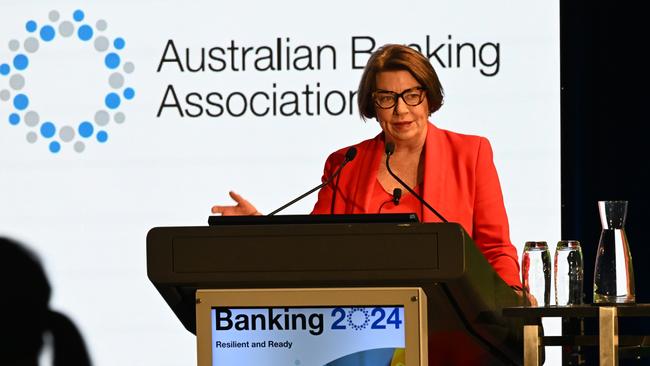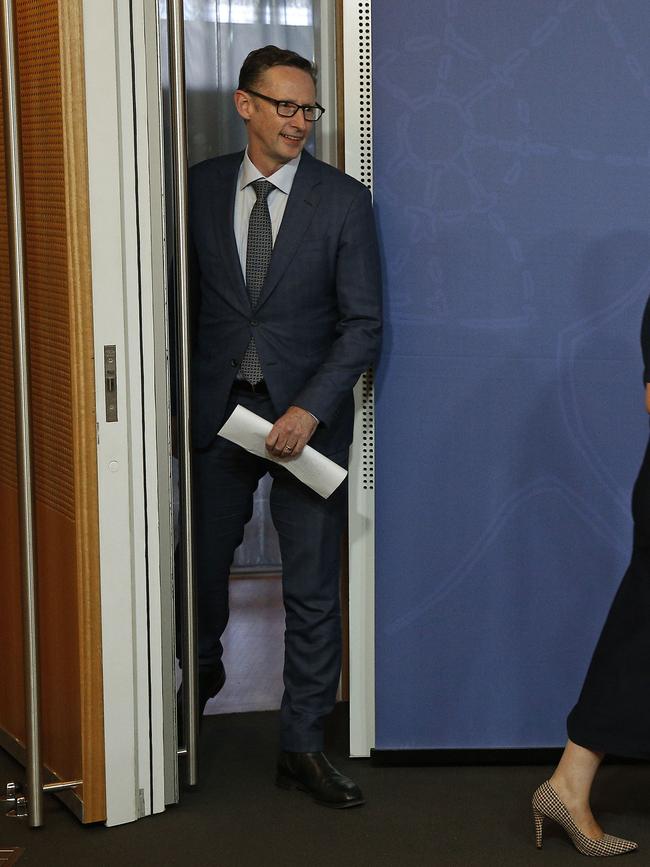Meta blocks bank attempt to ban Facebook scam pages
The Australian Banking Association has called for changes to mooted anti-scam laws, singling out social media platforms for failing to stop criminal operators.

Social media giant Meta blocked an attempt to take down Facebook pages where criminals were openly selling access to bank accounts, as the industry warned any attempt to clamp down on scams and frauds had to start online.
In its submission to an inquiry into mooted laws to strengthen Australia’s scams and fraud fight, the Australian Banking Association warned social media platforms were critical to stopping criminals misusing the financial system.
The ABA called for several changes to the laws, including removing the right to bring individual cases against regulated entities, as well as handing more power to the minister to issue Scam Prevention Framework rules.
Singling out Meta, the ABA said that even when the banking sector had tried to stop criminal actors buying and selling access to bank accounts, it had been stymied.
The ABA submission comes as the Albanese government’s planned reforms to put pressure on scammers are set to face scrutiny in the Senate.
A Senate inquiry is due to report back by February 3, with all remaining submissions due by January 9.
The proposed bill would introduce wide-ranging protections for Australians, in a bid to force banks, telcos and digital platforms to stop scammers and fight fraud.
Social media platforms will be initially included in the proposed scheme, before it expands to paid search engine advertising and digital messaging services, including Google and WhatsApp.
“By the time a customer uses their banking service to make a payment to a scammer, they have already been scammed,” the ABA noted in its submission.

The ABA said it had made a number of attempts to have Meta take down two Facebook pages – which The Australian has chosen not to name – that openly advertised bank accounts for sale, or solicited users to sell access to their accounts for others.
These criminal operators are seeking access to these accounts, with some offering as much as $1800 per week for some accounts at smaller lenders. Accounts at the majors often command fees from $350 up to $1200. These “mule” accounts are used by criminal groups seeking to disguise the source or destination of stolen or scammed funds.
Both of these pages have been live on Facebook since at least September last year, with one up since March.
The scammers say users who seek to sell their accounts must have PayID linked, demanding “no bullshit like downloading or links, you’re collaborating with a legit business team!”
Another says: “I’m in Australia and I’ll always try to give you a good price.”
Banks are troubled by the rise of mule accounts, with validly opened accounts often sold by students or tourists leaving the country.
In response to the ABA’s attempts to take down some of the pages, Facebook notes it had “taken a look and found that the group doesn’t go against our Community Standards”.
“We understand that this might be upsetting so we recommend exploring the options available to control what you see,” Facebook moderators note.
This is despite Meta noting in its community standards the company would remove content “that purposefully employs deceptive means – such as wilful misrepresentation, stolen information and exaggerated claims – to either scam or defraud users and businesses”.
Meta said it would investigate the scam pages after The Australian alerted the company.

ABA chief executive Anna Bligh said mule accounts were a key part of a scammer’s toolkit, noting criminals used them to hide and move money.
“It’s gobsmacking that digital platforms are allowing this type of activity to occur. Brazenly facilitating the sale and renting of bank accounts doesn’t pass muster,” Ms Bligh said.
“If the digital platforms are serious about protecting Australians from scams, they should be immediately shutting down this type of activity.”
Ms Bligh said the banking sector was taking steps to block mule accounts.
Banking major ANZ has invested in internal systems to pick up mule accounts.
“Digital platforms also need to step-up to the plate and do better,” Ms Bligh said.
This comes as Meta boss Mark Zuckerberg revealed the social media company would scale back its “censorship” and remove most of its “fact-checkers” and replace them with a community notes function, similar to that on offer on rival platform X, formerly known as Twitter.
Facebook’s moderation teams will also be moved from California to Texas.

Assistant Treasurer Stephen Jones said he was concerned Meta had become a “marketplace for scammers to target Australians”.
“That is why the Albanese government has introduced landmark laws that will force digital platforms, as well as banks and telcos, to protect Australians from scammers or face hefty fines,” Mr Jones said.
“It is unacceptable that Meta makes money off this criminal content and the government is determined to ensure the bar is seriously raised.”
More Coverage
Originally published as Meta blocks bank attempt to ban Facebook scam pages





